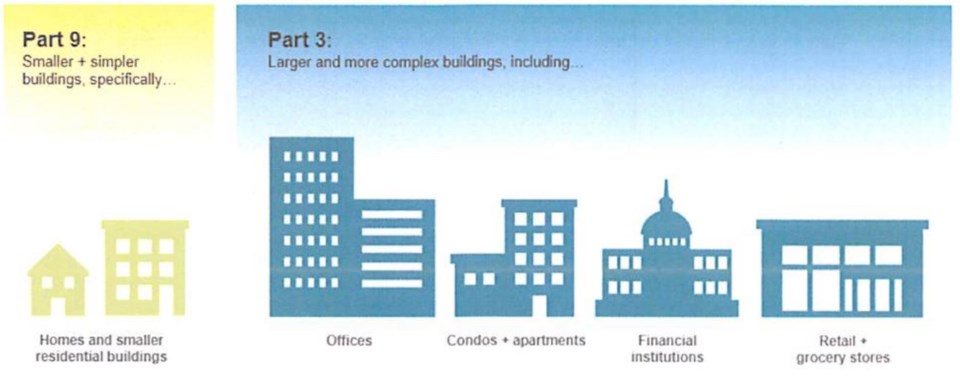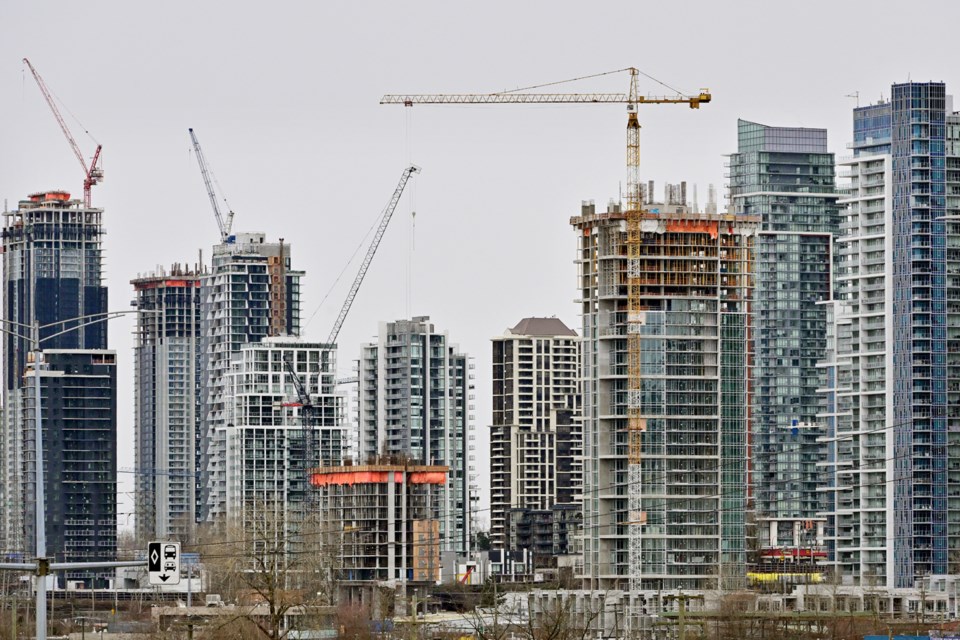Burnaby builders will have to build to the strongest new carbon emissions standards for large projects beginning Jan. 1, 2024.
Council unanimously approved new carbon standards Dec. 11, authorizing staff to put rules around the province’s new Zero Carbon Step Code into Burnaby’s policies and bylaws.
The new rules allow the city to directly limit the carbon emissions from new buildings.
The Zero Carbon Step Code, which sets greenhouse gas emissions targets, will require electrifying space heating and domestic hot water systems, according to a staff report.
“Builders and property owners may incur some additional costs as part of their overall project as a result,” stated the report.
Coun. Alison Gu asked staff in May to specifically consider requiring the highest rating, zero carbon performance, for large buildings like condo towers, apartments and offices, as well as the second highest rating for smaller residential buildings.
The Zero Carbon Step Code has four levels:
- Zero Carbon Performance: will typically require decarbonization of all systems (space heating and domestic hot water)
- Strong Carbon Performance: in most cases, will require decarbonization of both space heating and domestic hot water system
- Moderate Carbon Performance: in most cases, will require decarbonization of either space heating or domestic hot water systems
- Measure-only: requires measurement of a building’s emissions without reductions and is intended to build knowledge and capacity
Beginning Jan. 1, larger, complex buildings must align with Zero Carbon Performance, while smaller residential buildings must align with Strong Carbon Performance.
Smaller residential buildings must move up to Zero Carbon Performance by Jan. 1, 2025.

Staff consulted with the public and industry experts since May and published a feedback report with the 20 surveys completed.
Survey respondents said there were “no barriers” to implementing Zero Carbon Ready electric space and hot water systems, though some noted challenges for large, complex buildings, including electrical service and availability of appropriate equipment.
The staff report said new developments will be required to demonstrate load requirements and are responsible for distribution system upgrades if there isn’t adequate power to meet the additional load on their site.
One anonymized comment in the public feedback stated: “I do not anticipate any challenges as long as other jurisdictions continue to advance alongside Burnaby and there is good training/education for builders and building officials.”
Another said, “Need a new generation of plumbers and installers who have come up on these systems and know the ins and outs- aren’t trying to learn something new after working (with) gas for 20+ years.”
More than one suggested making training available to contractors and trades will be important, such as for airtightness, heat pumps and installing effective ventilation.
Burnaby’s survey respondents also noted several challenges to building to the higher steps of the Energy Step Code, a different code which sets energy efficiency requirements, beyond Step 3, particularly for buildings more than six storeys high.
Respondents said sharing insights, including showcasing examples of projects that have done this move already (noting ZebX of the Zero Emissions Innovation Centre has done this) will support the transition.
The new Zero Carbon regulations will not apply to large building developments that have passed second reading (the second of four major approvals council grants to rezoning applications) by Dec. 31.
Developments that have not received second reading will be subject to the new requirements.
Additional policy work is scheduled for 2024 which will consider moving both step codes from rezoning policy to amendments in the building bylaw.
The second phase of policy work will also schedule moving to higher steps of the Energy Step Code.





